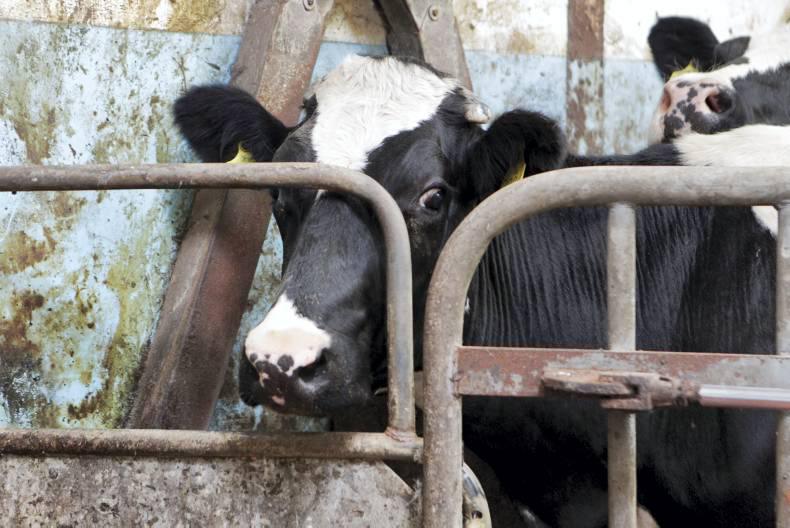With this is mind, Minister for Agriculture Michael Creed said that a Brexit is likely to have a significant negative effect on future spending on the CAP, particularly from 2021 onwards.
However, a more precise analysis shows that the UK contributes only 5% of the budget for CAP, according to Farm Europe. Amid fears that Britain’s exit will have a devastating effect on EU farmers, the farming organisation says that CAP “can cope” with a Brexit.
Farm Europe co-founder Luc Vernet said that, taking into account the British rebate and the return on contributions level, Brexit is not a “serious blow” from a budgetary point of view.
UK footprint on EU budget
Taking 2013 as a baseline, the UK received €3.9bn via CAP and contributed to the CAP for €6.8bn. These figures, according to Vernet, help draw the real UK footprint on the EU budget, and the implications of the absence of a UK contribution in a post-Brexit context for the CAP.
“The overall impact of a Brexit on the CAP budget would be limited to less than 5% of the CAP budget – or around €2.9bn per year.
“This 5% would be balanced politically in case of a post-Brexit financial negotiation, knowing that the UK government has traditionally been the main advocate in the net contributors group of countries, which are reluctant to maintain the CAP budget.
“The impact of a Brexit is first and foremost concentrated on the UK’s farming sector and on trade with many uncertainties, mainly for UK farmers,” he said.
Farm income in NI
Meanwhile, in Northern Ireland (NI) 155% of net farm income came from direct supports last year. In comparison, in the Republic of Ireland, only 55% of net farm income came from direct supports in 2015.
£236m of NI’s direct supports was received from the EU under CAP in 2015, while total farming income was £183m, meaning the industry operated at a loss.
DUP MP Gavin Robinson recently argued that the £19bn paid into the EU by the UK each year would be better spent than the £10bn that is received back as a net contributor.
“If there was £19bn and there was a spend proportionally on agriculture, then the Northern Ireland 3% of that £19bn is bigger than the 3% of £10bn,” he argued.
Read more
Implications for Irish agriculture as British cast a Brexit ballot
Full coverage: Brexit
With this is mind, Minister for Agriculture Michael Creed said that a Brexit is likely to have a significant negative effect on future spending on the CAP, particularly from 2021 onwards.
However, a more precise analysis shows that the UK contributes only 5% of the budget for CAP, according to Farm Europe. Amid fears that Britain’s exit will have a devastating effect on EU farmers, the farming organisation says that CAP “can cope” with a Brexit.
Farm Europe co-founder Luc Vernet said that, taking into account the British rebate and the return on contributions level, Brexit is not a “serious blow” from a budgetary point of view.
UK footprint on EU budget
Taking 2013 as a baseline, the UK received €3.9bn via CAP and contributed to the CAP for €6.8bn. These figures, according to Vernet, help draw the real UK footprint on the EU budget, and the implications of the absence of a UK contribution in a post-Brexit context for the CAP.
“The overall impact of a Brexit on the CAP budget would be limited to less than 5% of the CAP budget – or around €2.9bn per year.
“This 5% would be balanced politically in case of a post-Brexit financial negotiation, knowing that the UK government has traditionally been the main advocate in the net contributors group of countries, which are reluctant to maintain the CAP budget.
“The impact of a Brexit is first and foremost concentrated on the UK’s farming sector and on trade with many uncertainties, mainly for UK farmers,” he said.
Farm income in NI
Meanwhile, in Northern Ireland (NI) 155% of net farm income came from direct supports last year. In comparison, in the Republic of Ireland, only 55% of net farm income came from direct supports in 2015.
£236m of NI’s direct supports was received from the EU under CAP in 2015, while total farming income was £183m, meaning the industry operated at a loss.
DUP MP Gavin Robinson recently argued that the £19bn paid into the EU by the UK each year would be better spent than the £10bn that is received back as a net contributor.
“If there was £19bn and there was a spend proportionally on agriculture, then the Northern Ireland 3% of that £19bn is bigger than the 3% of £10bn,” he argued.
Read more
Implications for Irish agriculture as British cast a Brexit ballot
Full coverage: Brexit






 This is a subscriber-only article
This is a subscriber-only article











SHARING OPTIONS: